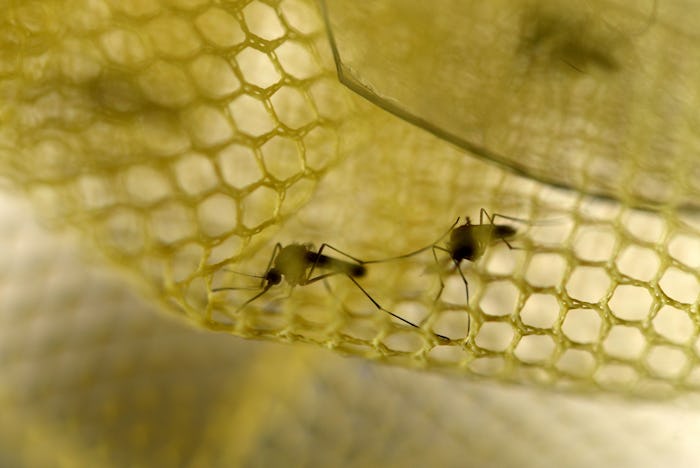Life

How Will The Zika Vaccine Work? Scientists Have High Hopes
It could be the news we've all been waiting for: a vaccine for Zika. As mothers anxiously slather their children with insect repellant and wary vacationers reconsider traveling south, a U.S. company has announced they are planning on a first clinical trial of a possible vaccine to the Zika virus. How will this Zika vaccine work? Scientists are getting excited about the possibilities.
Inovio Pharmaceuticals has announced that it will be conducting Phase One safety trials in the upcoming weeks to determine the efficacy of their proposed vaccine. The U.S. Federal Drug Administration has given its stamp of approval to allow the vaccine to be tested on 40 volunteers. This phase of the trial, Phase One, is a preliminary test used to ensure the vaccine is safe for use. Dr. Joseph Kim, Inovio's president and CEO, said in the company's press release on Monday:
We are proud to have attained the approval to initiate the first Zika vaccine study in human volunteers. As of May 2016, 58 countries and territories reported continuing mosquito-borne transmission of the Zika virus; the incidences of viral infection and medical conditions caused by the virus are expanding, not contracting. We plan to dose our first subjects in the next weeks and expect to report phase I interim results later this year.
The initial volunteers will be given the vaccine for Zika but not the virus, and will have their blood monitored for any possible side effects. The Zika virus, as most of us are probably already aware, is passed through the Aedes variety of mosquito bite. While it has little effect on a regular, healthy adult who might experience flu-like symptoms for a few days, the virus has proven dangerous for pregnant women especially.
Babies who have been exposed to the virus in utero can develop life-altering neurological disorders like microcephaly (when an infant's brain is abnormally small) or Guillane-Barre disease (a type of paralysis). The virus has been incredibly difficult to contain, especially in Latin America, and can also be sexually transmitted through the semen of an infected male.
This possible new vaccine from Inovio would use a dead version of the virus in order to build up a resistance in the body's immune system, then create proteins to fight the virus.
If the 40 volunteers who will be injected with the vaccine react positively, the trial will move into Phase Two and Three, which is when scientists will determine if the vaccine is effective at avoiding Zika.
The results of the Phase One trial are not expected until later this year, with the initial phase taking up to four months, according to Dr. Anthony Fauci, the Director of the National Institute of Allergy and Infectious Diseases at the National Health Institute. And while the Zika vaccine might not be available for a few years, it is exciting to see the light at the end of the tunnel.
As Dr. Fauci said, "This is good news."